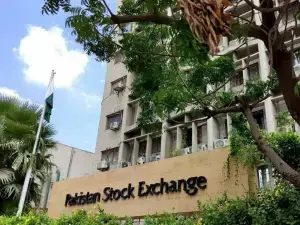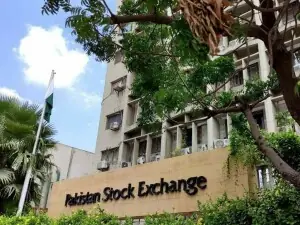Federal Finance Minister Ishaq Dar has asked the Competition Commission of Pakistan (CCP) to examine why a highly significant reduction in prices of petroleum products has caused no concomitant decrease in prices of various other commodities and transport fares. The minister issued his directive during his speech at a seminar organized by the CCP in connection with the global World Competition Day. There is no doubt about that the fact that the PML-N government's move in relation to POL prices is clearly aimed at reducing prices of goods and rates of transport fares. Further, the Minister wants the CCP to focus its attention on staple food; and he does not want the commission to restrict itself to only industrial sector. We, however, fail to understand the logic behind Dar's argument: why has he asked the CCP to devise a mechanism for price reduction? The CCP is supposed to be a pro-business regulatory body and price fixation is antithesis to its very existence and declared aims and objects.
Dar needs to understand that price is not just a function of cost; supply and demand also have a direct bearing on price setting, which means the process of coming up with a cost to consumers of a good or service produced by a business. The price level of a product is typically set based on its production and distribution costs, as well as the value of the product perceived by target consumers. Second, he also needs to recognise that the government in this country has a very large footprint. The economy is largely rigged through administered prices. It is the responsibility of provincial governments, in the absence of local governments, to negotiate and fix public transport fares within a city for passengers. In the recent past, public transport fares were fixed by a team headed by provincial secretary transport and effectively implemented by police. Now the government-stamped bus tickets or sealed meters in taxis and rickshaws have been abandoned owing to whatever reasons and now drivers-cum-owners (mostly police officials themselves) of these vehicles are at liberty to demand from passengers whatever fare they want. In addition, inflation in Pakistan is artificially controlled by the government and its agencies through administered prices of utilities and support price. It is the weakening of administrative machinery of the government that is responsible for poor response to cuts in POL prices. Jet Fuel Price (JPI) is not subject to regulatory controls. Pakistan International Airlines (PIA) in order to fight back for its market share has slashed some fares. Pakistan Railways may need to do the same in order to put some pressure on cargoes ferried by trucks. But Minister of Finance knows that FBR takes a flat tax from truckers instead of taxing their real income because of their clout and the weaknesses in writ of the government.
How ironic it is that we in Pakistan are habitual in placing the proverbial cart before the horse. We are fond of promulgating laws prior to making a policy. This wrong sequencing badly hurts our ability to achieve results. Economic Co-ordination Committee of the Cabinet meets every fortnight to monitor prices of essential items; but it is the provinces that enjoy the legal power of enforcement. There are dynamics in play which result in poor tangible improvement. The US may be the only country where retail prices of POL reflect a real, not perceived, dip in the international crude prices.
Almost all economists are in agreement that a downward movement of prices is sticky or slow compared to upward hikes. Unless and until the regulatory authority has strong teeth to enforce its writ, the system will remain dysfunctional. The government needs to do what it can. Deregulating retail prices of POL products and abolishing a uniform retail price for POL products and abolishing freight equalisation surcharge might have triggered an instant reduction in prices of consumer goods and staple food. In addition, the high level of currency-in-circulation (29 percent of deposits) has woefully weakened the linkage between regulated and unregulated (black) economy. Thriving retail business and real estate prices allow investors to park their tax evaded income in large numbers.
The government also needs to know that impact on prices comes with a time lag. The governments that formulate and pursue sound macroeconomic policies do not need to promote the culture of administered prices. Allowing free market mechanisms to work and abstaining from non-sustainable subsidies would ultimately pay higher dividends. The government must allow the CCP to focus on cartels and provide this one of the key regulators financial and administration autonomy. The ministry of finance needs to focus on creation of commercial courts with trained judges for quicker and fairer dispensation of justice. It must give a serious thought to the World Food Organisation's highly plausible argument that price controls may appear to work in the short-term but they cause a long-term harm.
BR100
16,307
Increased By
236.2 (1.47%)
BR30
51,537
Increased By
1163.4 (2.31%)
KSE100
157,953
Increased By
1775.7 (1.14%)
KSE30
48,199
Increased By
520.5 (1.09%)






















Comments
Comments are closed.